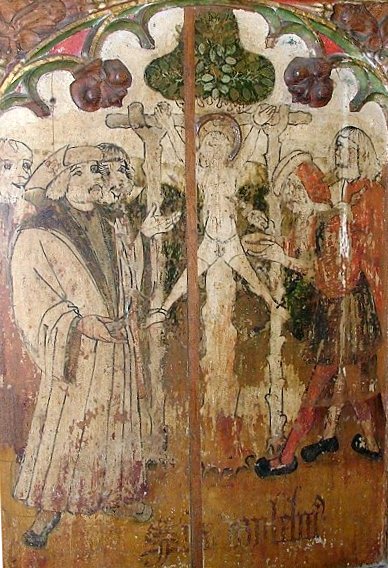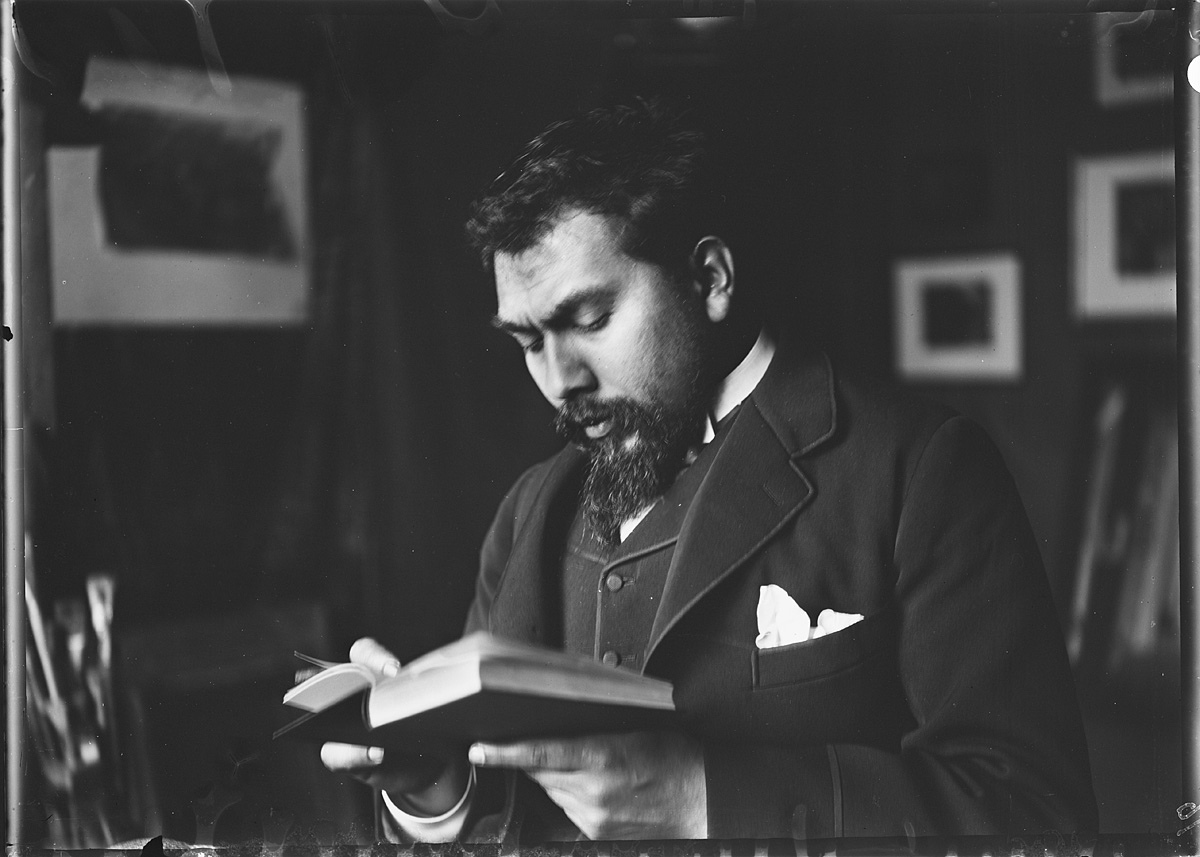|
Edmond Picard
Edmond Picard (15 December 1836 – 19 February 1924) was a Belgian jurist and writer. He was a leading theoretician of antisemitism and racism in Belgium, as well as a champion of Belgian nationalism through his notions of the "Belgian soul" and Belgian martyrdom in World War I. He was nominated for the Nobel Prize in Literature five times. Career He was lawyer at the court of appeal and the Court of Cassation of Belgium. He was also head of the Belgian bar association, professor of law, playwright and journalist. Involved in politics, he was senator for the Belgian Labour Party. He also was a patron of the arts. The Symbolist poet Émile Verhaeren frequented Picard's literary salon and worked as a law intern at Picard's office between 1881 and 1884 before abandoning his legal career in favour of writing; Verhaeren too went on to receive multiple nominations for the Nobel Prize in Literature. Views Picard propagated virulent racism and antisemitism in his works, such as '' ... [...More Info...] [...Related Items...] OR: [Wikipedia] [Google] [Baidu] |
Brussels
Brussels, officially the Brussels-Capital Region, (All text and all but one graphic show the English name as Brussels-Capital Region.) is a Communities, regions and language areas of Belgium#Regions, region of Belgium comprising #Municipalities, 19 municipalities, including the City of Brussels, which is the capital of Belgium. The Brussels-Capital Region is located in the central portion of the country. It is a part of both the French Community of Belgium and the Flemish Community, and is separate from the Flemish Region (Flanders), within which it forms an enclave, and the Walloon Region (Wallonia), located less than to the south. Brussels grew from a small rural settlement on the river Senne (river), Senne to become an important city-region in Europe. Since the end of the Second World War, it has been a major centre for international politics and home to numerous international organisations, politicians, Diplomacy, diplomats and civil servants. Brussels is the ''de facto' ... [...More Info...] [...Related Items...] OR: [Wikipedia] [Google] [Baidu] |
Salon (gathering)
A salon is a gathering of people held by a host. These gatherings often consciously followed Horace's definition of the aims of poetry, "either to please or to educate" (Latin: ''aut delectare aut prodesse''). Salons in the tradition of the French literary and philosophical movements of the 17th and 18th centuries are still being conducted. Historical background The salon first appeared in Italy in the 16th century, then flourished in France throughout the 17th and 18th centuries. It continued to flourish in Italy throughout the 19th century. In 16th-century Italy, some brilliant circles formed in the smaller courts which resembled salons, often galvanized by the presence of a beautiful and educated patroness such as Isabella d'Este or Elisabetta Gonzaga. Salons were an important place for the exchange of ideas. The word ''salon'' first appeared in France in 1664 (from the Italian ''salone'', the large reception hall of Italian mansions; ''salone'' is actually the augmentati ... [...More Info...] [...Related Items...] OR: [Wikipedia] [Google] [Baidu] |
Belgian Journalists
{{Disambiguation ...
Belgian may refer to: * Something of, or related to, Belgium * Belgians, people from Belgium or of Belgian descent * Languages of Belgium, languages spoken in Belgium, such as Dutch, French, and German *Ancient Belgian language, an extinct language formerly spoken in Gallia Belgica *Belgian Dutch or Flemish, a variant of Dutch *Belgian French, a variant of French *Belgian horse (other), various breeds of horse *Belgian waffle, in culinary contexts * SS ''Belgian'', a cargo ship in service with F Leyland & Co Ltd from 1919 to 1934 *''The Belgian'', a 1917 American silent film See also * *Belgica (other) *Belgic (other) Belgic may refer to: * an adjective referring to the Belgae, an ancient confederation of Celto-Germanic tribes * a rarer adjective referring to the Low Countries or to Belgium * , several ships with the name * Belgic ware, a type of pottery * Bel ... [...More Info...] [...Related Items...] OR: [Wikipedia] [Google] [Baidu] |
Antisemitism In Belgium
Antisemitism, the prejudice or discrimination against Jews, has had a long history since the Classical antiquity, ancient times. While antisemitism had already been prevalent in ancient Greece and Roman Empire, its institutionalization in European Antisemitism in Christianity, Christianity after the Siege of Jerusalem (70 CE), destruction of the History of the Jews and Judaism in the Land of Israel, ancient Jewish cultural center in Jerusalem caused History of the Jews in Europe, two millennia of Jewish ghettos in Europe, segregation, Expulsions and exoduses of Jews, expulsions, Persecution of Jews, persecutions, pogroms, genocides of Jews, which culminated in the 20th-century The Holocaust, Holocaust in German-occupied Europe, Nazi German-occupied European states, where 67% of all European Jews were murdered. Roman Empire Middle Ages Antisemitism in Europe in the Middle Ages was largely influenced by the Christian belief that the Jewish people were Jewish deicide, collect ... [...More Info...] [...Related Items...] OR: [Wikipedia] [Google] [Baidu] |
19th-century Belgian Male Writers
The 19th century began on 1 January 1801 (represented by the Roman numerals MDCCCI), and ended on 31 December 1900 (MCM). It was the 9th century of the 2nd millennium. It was characterized by vast social upheaval. Slavery was abolished in much of Europe and the Americas. The First Industrial Revolution, though it began in the late 18th century, expanded beyond its British homeland for the first time during the 19th century, particularly remaking the economies and societies of the Low Countries, France, the Rhineland, Northern Italy, and the Northeastern United States. A few decades later, the Second Industrial Revolution led to ever more massive urbanization and much higher levels of productivity, profit, and prosperity, a pattern that continued into the 20th century. The Catholic Church, in response to the growing influence and power of modernism, secularism and materialism, formed the First Vatican Council in the late 19th century to deal with such problems and confirm ce ... [...More Info...] [...Related Items...] OR: [Wikipedia] [Google] [Baidu] |
1924 Deaths
Events January * January 12 – Gopinath Saha shoots Ernest Day, whom he has mistaken for Sir Charles Tegart, the police commissioner of Calcutta, and is arrested soon after. * January 20–January 30, 30 – Kuomintang in China holds its 1st National Congress of the Kuomintang, first National Congress, initiating a policy of alliance with the Soviet Union and the Chinese Communist Party. * January 21 – Alexander Cambridge, 1st Earl of Athlone, The Earl of Athlone is appointed Governor-General of the Union of South Africa, and High Commissioner for Southern Africa.Archontology.org: A Guide for Study of Historical Offices: South Africa: Governors-General: 1910-1961 (Accessed on 14 April 2017) * January 22 – R ... [...More Info...] [...Related Items...] OR: [Wikipedia] [Google] [Baidu] |
1836 Births
Events January–March * January 1 — Hill Street Academy is named Colombo Academy and acquired by the Government, establishing the first public school in Sri Lanka. * January 1 – Queen Maria II of Portugal marries Prince Ferdinand Augustus Francis Anthony of Saxe-Coburg-Gotha. * January 5 – Former U.S. Representative Davy Crockett of Tennessee arrives in Texas to join the Texan fight for independence from Mexico. * January 12 ** , with Charles Darwin on board, reaches Sydney. ** Will County, Illinois, is formed. * February 8 – London and Greenwich Railway opens its first section, the first railway in London, England. * February 23 – Texas Revolution: The Battle of the Alamo begins, with an American settler army surrounded by the Mexican Army, under Santa Anna. * February 25 – Samuel Colt receives a United States patent for the Colt revolver, the first revolving barrel multishot firearm. * March 1 – Texas Revolution – Convention of 1836: Delegate ... [...More Info...] [...Related Items...] OR: [Wikipedia] [Google] [Baidu] |
Jan Toorop
Johannes Theodorus "Jan" TooropJan Toorop Netherlands Institute for Art History, 2014. Retrieved on 18 February 2015. (20 December 1858 – 3 March 1928) was a Dutch painter who worked in various styles, including Symbolism (arts), Symbolism, Art Nouveau, and Pointillism. His early work was influenced by the Amsterdam Impressionism movement. Biography Johannes Theodorus Toorop was born on 20 December 1858 in Purworejo Regency, Purworejo on the island of Java (island), Java in the Dutch East Indies (present-day Indonesia). His father was Christoffel Theodorus Toorop, a civil servant, and his mother was Maria Magdalena Cooke. B. H. Spaanstra-Polak[...More Info...] [...Related Items...] OR: [Wikipedia] [Google] [Baidu] |
National Socialism
Nazism (), formally named National Socialism (NS; , ), is the far-right totalitarian socio-political ideology and practices associated with Adolf Hitler and the Nazi Party (NSDAP) in Germany. During Hitler's rise to power, it was frequently referred to as Hitler Fascism () and Hitlerism (). The term "neo-Nazism" is applied to other far-right groups with similar ideology, which formed after World War II, and after Nazi Germany collapsed. Nazism is a form of fascism, with disdain for liberal democracy and the parliamentary system. Its beliefs include support for dictatorship, fervent antisemitism, anti-communism, anti-Slavism, anti-Romani sentiment, scientific racism, white supremacy, Nordicism, social Darwinism, homophobia, ableism, and the use of eugenics. The ultranationalism of the Nazis originated in pan-Germanism and the ethno-nationalist '' Völkisch'' movement which had been a prominent aspect of German ultranationalism since the late 19th century. Nazism was ... [...More Info...] [...Related Items...] OR: [Wikipedia] [Google] [Baidu] |
Arthur De Gobineau
Joseph Arthur de Gobineau (; 14 July 1816 – 13 October 1882) was a French writer and diplomat who is best known for helping introduce scientific race theory and "racial demography", and for developing the theory of the Aryan master race and Nordicism. He was an elitist who, in the immediate aftermath of the Revolutions of 1848, wrote '' An Essay on the Inequality of the Human Races''. In it he argued that aristocrats were superior to commoners and that aristocrats possessed more Aryan genetic traits because of less interbreeding with inferior races. Gobineau was born to an aristocratic family of counts under the ''Ancien Régime''. He was ideologically a Legitimist who supported royalist rule by the House of Bourbon and opposed the French Revolution, democracy, and rule by the House of Orléans which came to power after the 1830 July Revolution. He began his diplomatic career in the late 1840s, and beginning in 1861, variously served as minister to Persia, Brazil, Greece, and ... [...More Info...] [...Related Items...] OR: [Wikipedia] [Google] [Baidu] |







